2023 Cloud Computing Fellows Embark on Journey of Innovation
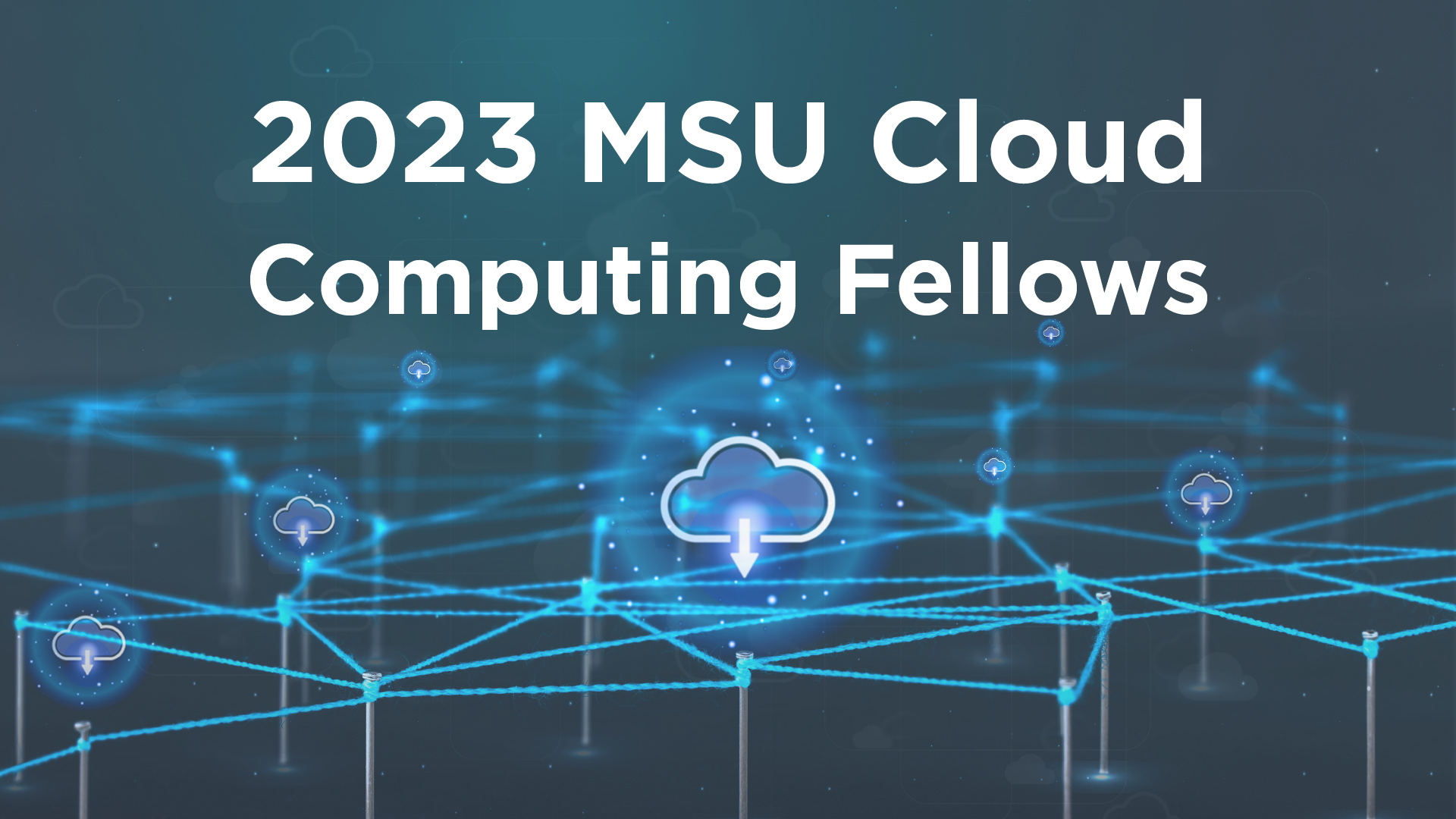
The 2023 Cloud Computing Fellowship cohort at Michigan State University has embarked on a journey to push the boundaries of traditional high-performance computing. As a joint effort between the Institute for Cyber-Enabled Research (ICER) and the IT Services Research Cyberinfrastructure (RCI) group, this fellowship is dedicated to equipping academic researchers with the knowledge and hands-on experience required to harness the power of cloud computing, a technology that is reshaping the landscape of research and innovation.
Cloud computing allows users to utilize computing resources, such as servers, storage, databases, networking, and software, over the internet. These resources are hosted and managed by cloud service providers in remote data centers, which are more scalable and have a lower barrier to access than building your own high-performance computing center.
Led by Dr. Mahmoud Parvizi, a former participant turned facilitator and research consultant at ICER, and Patrick Bills, a facilitator and research software engineer at ICER, the cohort comprises researchers who will influence and inspire others to embrace the vast potential of cloud computing resources in their research endeavors.
In today's academic landscape, computational research has transcended its traditional boundaries and is now an indispensable tool in a wide array of disciplines. The 2023 cohort mirrors this diversity of academic backgrounds, with participants hailing from a broad spectrum of research areas across MSU. Whether bioinformatics, social sciences, or engineering, these fellows represent the growing importance of cloud computing in academia.
The culmination of this journey will be marked by a final symposium, where each fellow will deliver a presentation about how they have integrated cloud computing resources into their ongoing research. This symposium serves as a platform for fellows to demonstrate the real-world applications of cloud computing tools within the academic realm, showcasing the transformative potential of their work and catalyzing advancements in research across the university.
Congratulations and welcome to the new cohort! Read on to learn about each fellow.
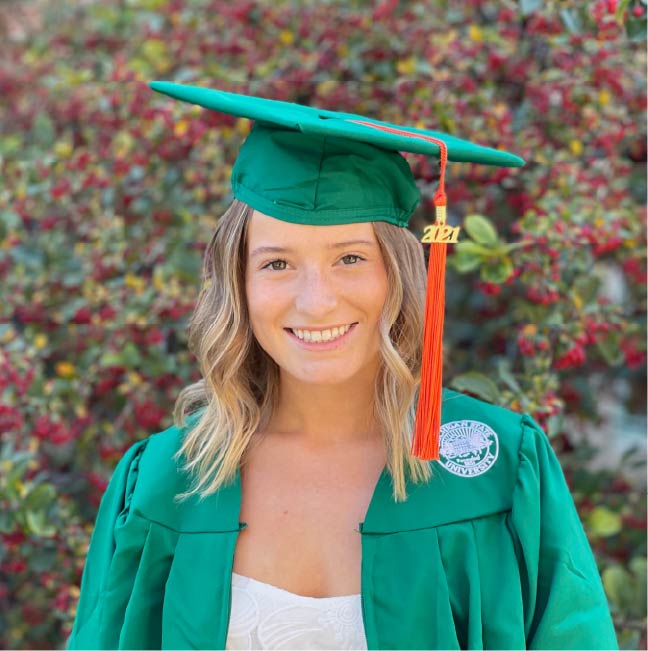 Julie Marie Celini
Julie Marie Celini
Biography: Julie Celini is a second-year Master’s student in the Department of Biosystems and Agricultural Engineering at Michigan State University where she also completed her Bachelor’s degree. Julie’s interests lie in sustainable land management, particularly in the realm of agriculture, and she aspires to carry this passion into her future career. Additionally, Julie’s Spartan spirit runs deep as she proudly wore green and white while being a part of the All-Girl Cheer and STUNT Team during her undergraduate years at MSU.
Research Description: Julie’s research focuses on the improvement of agricultural practices, aiming to enhance the sustainability of agriculture while ensuring the health and fertility of the soil necessary for meeting the increasing demand for food and environmental preservation. Julie aspires to integrate this research with cloud computing, utilizing it for the analysis of bacterial and fungal communities within agricultural soil.
 Rajarshi Pal Chowdhury
Rajarshi Pal Chowdhury
Biography: Rajarshi joined the radiation transport group in the "Experimental Systems Division" of the Facility of Rare Isotope Beams (FRIB) as a post-doctoral research associate in 2023. He has a Ph.D. in Nuclear Engineering and three years of industry experience in the areas of radiation transport and shielding for humans and electronics on the Earth and in space. At FRIB, Rajarshi focuses on contributing to the solution of complex occupational radiation shielding problems to ensure the safety of radiation workers and the general public. The career goal of Rajarshi is to be an active contributor to the radiation protection and shielding community as a researcher/educator to further human advances in the 22nd century with the safer use of radiation sources. Apart from work, Rajarshi likes to hike, travel, and is a big fan of stand-up comedies.
Research Description: In his present work, Rajarshi aims to implement applied machine learning algorithms to reduce computational costs of radiation shielding problems pertaining to high-energy accelerator facilities. His goal is to train algorithms to understand the complexity associated with radiation shielding physics to predict radiation dose more intelligibly on a relatively shorter time scale for radiation safety purposes. These models will be verified with existing established radiation transport models and/or experimental datasets that are already available.
 Chenyang Deng
Chenyang Deng
Biography: Chenyang Dang is a Ph.D. student in civil and environmental engineering at MSU. His interests include data mining and model simulation in photovoltaic systems. Chenyang is very interested in environmental sustainability and wants to be an environmental scientist in the clean energy industry. He likes music and tennis, and likes to waste a lot of time watching videos about math, medicine, history, and any subject outside his area.
Research Description: Chenyang’s research area is the modeling of end-of-life stage in solar energy. His proposed project is to collect data from utility-scale solar plants, identify the plants that have replaced the modules for energy generation, and estimate the potential waste produced by those plants.
 Graham David Diedrich
Graham David Diedrich
Biography: Graham Diedrich is a graduate student at Michigan State University, pursuing a Master of Science (M.S.) in Data Science with a focus on environmental policy and climate change. His research centers on sustainable resource governance, environmental justice, and clean energy systems. Graham holds a B.A. in International Relations and a Master of Public Policy from MSU. With a commitment to advancing environmental policy through community-centered approaches, Graham strives to contribute meaningfully to creating a more sustainable and equitable future.
Research Description: For this fellowship, Graham’s plan is to focus on modeling an environmental or social system. In particular, he would like to forecast the emission reduction potential of recently proposed climate-related bills in Michigan. This scenario could be compared against a baseline business-as-usual (BAU), among others.
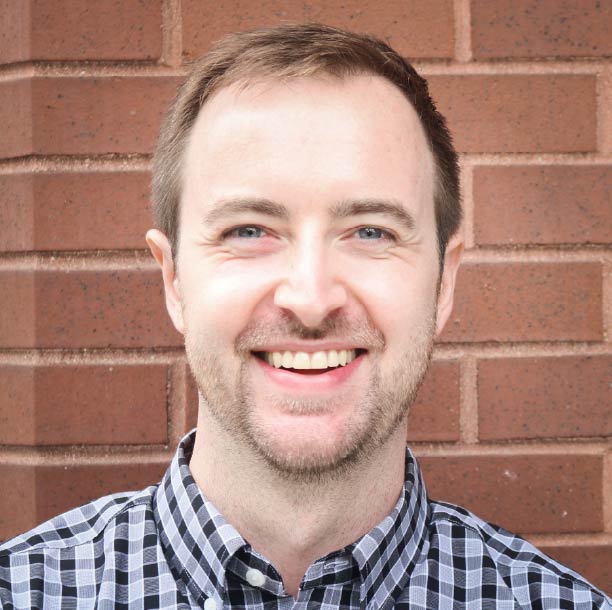 Mike Frazier
Mike Frazier
Biography: Mike Frazier is a Ph.D. student in Educational Psychology and Educational Technology (EPET) at Michigan State University and a member of The Research Laboratory for Digital Learning. He is an educator, teacher leader, and researcher with extensive experience teaching English, writing, and educational technology in public and private K-12 and higher education institutions in both the United States and South Korea. He earned his Master of Education (dual teaching certification in English, Educational Technology) from The Ohio State University and Bachelor of Arts in English from Miami University of Ohio.
Research Description: Mike studies the intersections between human and machine cognition—specifically, generative Artificial Intelligence (AI) tools like ChatGPT and their potential as learning and instructional tools. This specific project seeks to better understand the cognitive processes related to human and AI perceptions and collaborations.
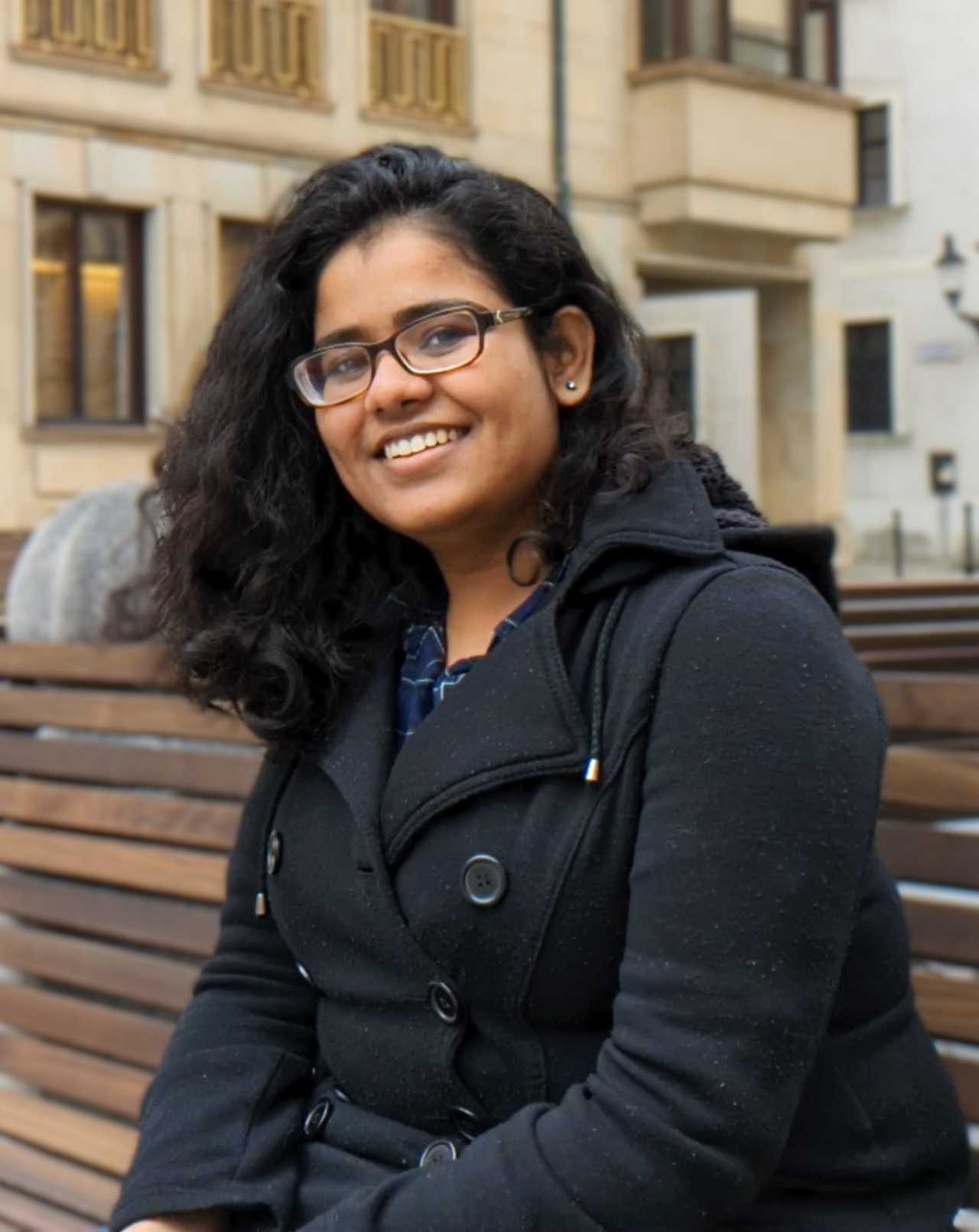 Ishika Ghosh
Ishika Ghosh
Biography: Ishika Ghosh is a second-year Ph.D. student at the Department of Computational Mathematics, Science, and Engineering. She received her BSMS Dual Degree in Mathematics from the Indian Institute of Science Education and Research Tirupati (IISER-T), India. Ishika is interested in exploring the information provided by the "shape" of the datasets. Outside of academia, she interacts with the world through her camera lens and literature. She wishes to combine cloud computing and computational topology to make TDA techniques more accessib7le to fellow researchers.
Research Description: In a broader sense, Ishika’s research interest lies in applied and computational topology, especially Topological Data Analysis (TDA), which explores the hidden patterns and relationships within datasets, contributing to the advancement of data analysis techniques. She is currently working on reconstructing original data from its graph-based topological signatures.
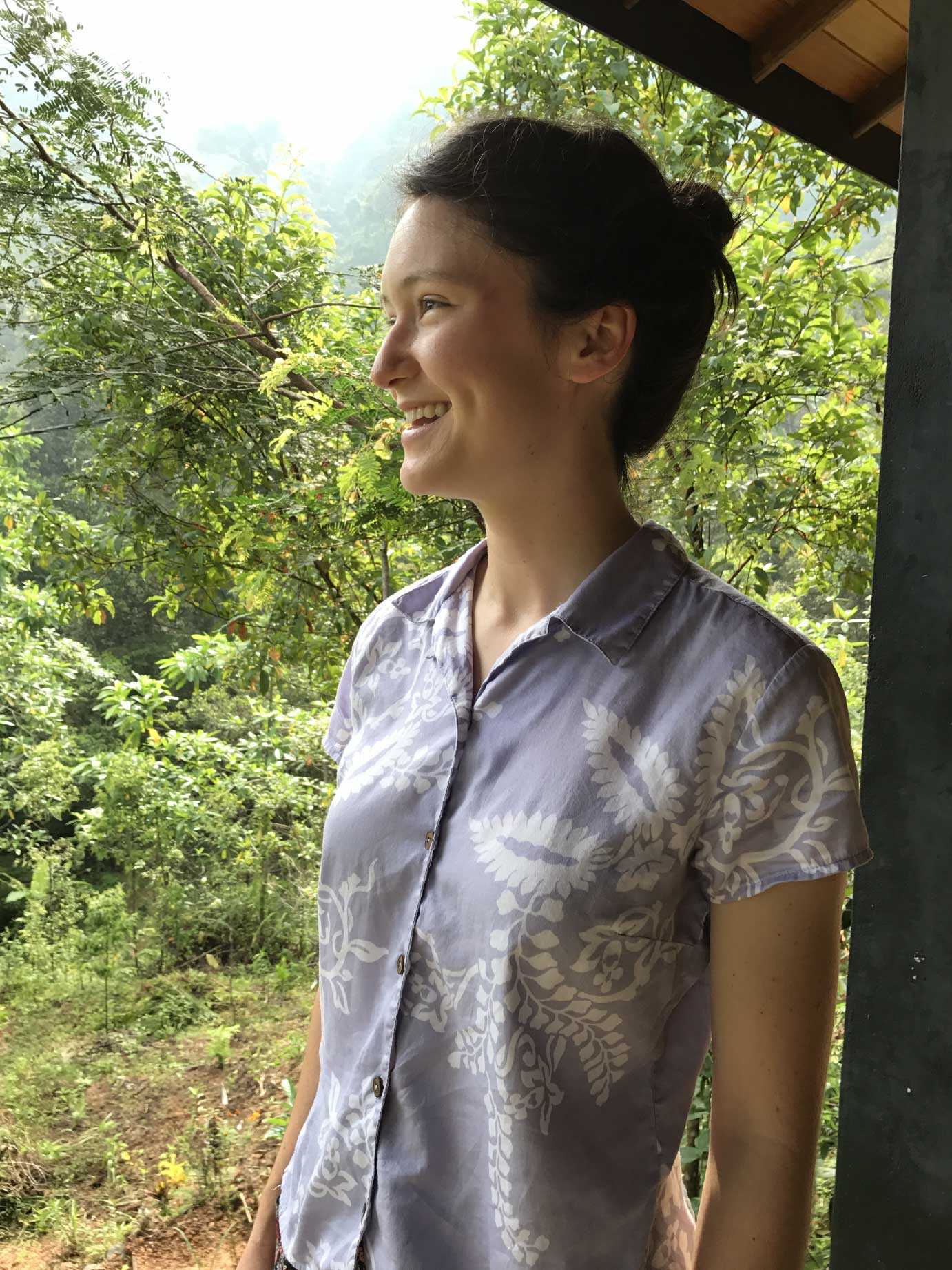 Juliana Reed Burroughs Hanle
Juliana Reed Burroughs Hanle
Biography: Juliana is a Ph.D. student in the Basso Lab studying remote sensing of working landscapes for natural climate solutions and atmospheric greenhouse gas reductions. She is broadly interested in computational approaches to natural climate solutions, but specifically in tracking management and identifying impacts of climate-smart land-use co-benefits. She studied history at Yale College, was a Fulbright research grantee to Norway, and has a Master’s degree in Forestry from the Yale School of the Environment. She has been working to scale sampling approaches at The Soil Inventory Project.
Research Description: Juliana is currently using Synthetic Aperture Radar, which is microwave remote sensing, to detect crop management. She is interested in leveraging cloud computing resources to remotely process and analyze satellite imagery at scale. Specifically, is it possible to swiftly and efficiently process 5-meter resolution images over seven years across the Northern Great Plains?
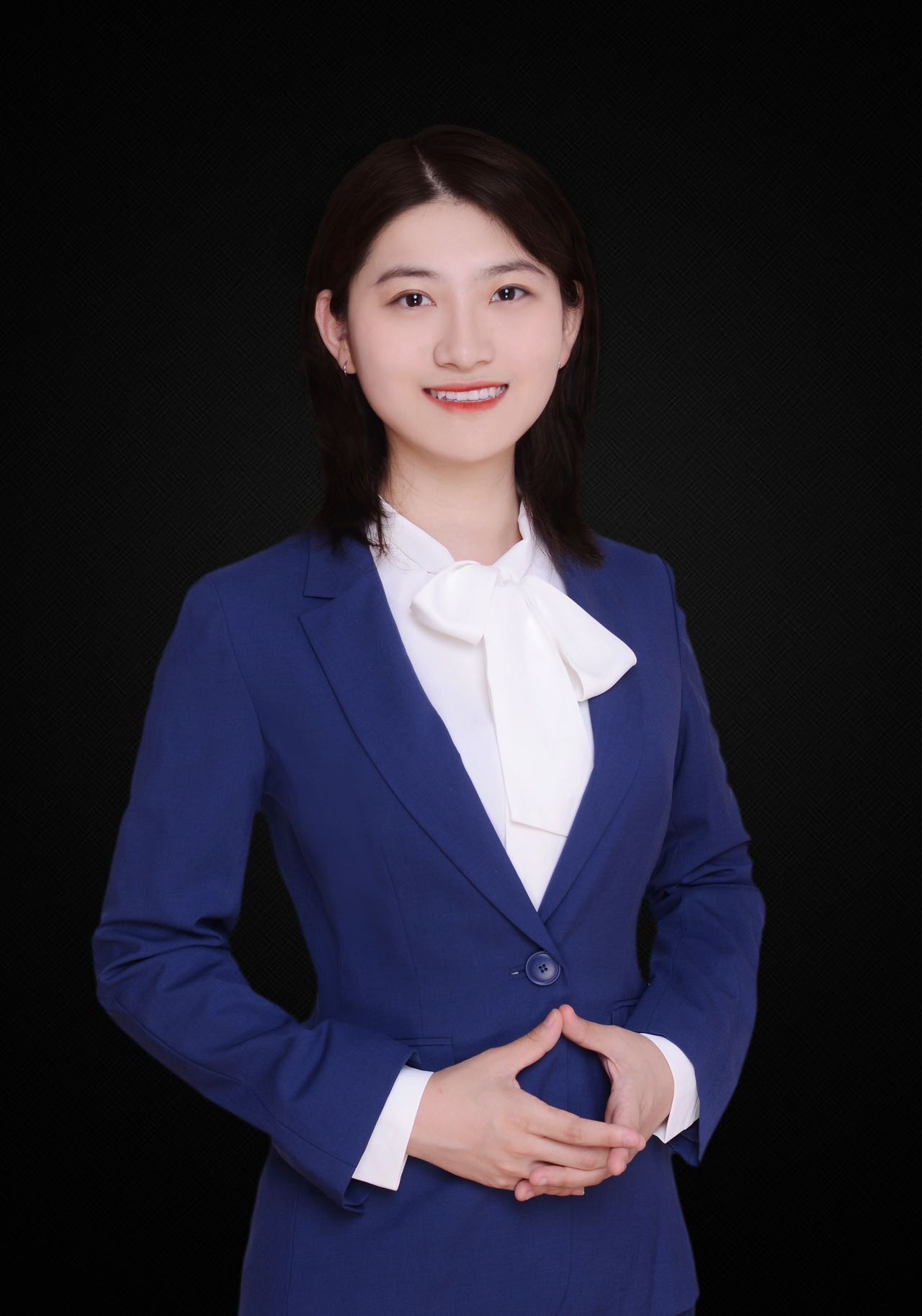 Nan Jia
Nan Jia
Biography: Nan Jia is currently a Ph.D. student in Fish and Wildlife and Environmental Science and Policy. She spent her undergraduate and master's degrees working with RS and GIS, and her interdisciplinary background gives her a unique perspective and flexibility to use these tools for large-scale, cross-disciplinary research. Currently, she is exploring the use of big data to quantify the impacts of multiple crises and advise policymakers.
Research Description: Nan's current research area focuses on quantifying and mapping the impacts of perturbations (e.g., policies, disasters, crises, etc.) within and across systems using multiple data sources. Nan plans to use a cloud computing platform to visualize the impacts of COVID-19 on global food resilience and to reveal existing inequalities.
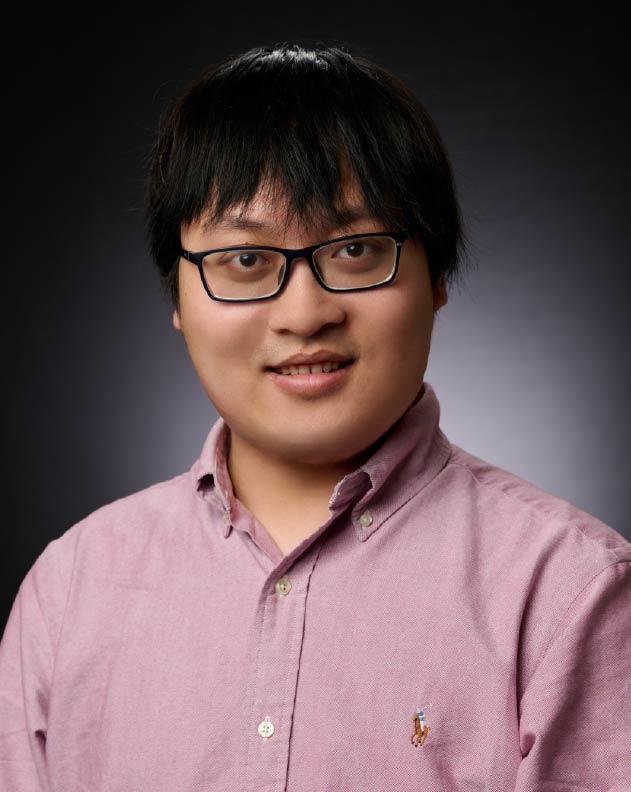 Xin Lan
Xin Lan
Biography: Xin Lan is currently pursuing a Ph.D. in the Department of Geography, Environment, and Spatial Sciences at Michigan State University. Prior to this, he completed his master's in Earth and Environmental Engineering at Columbia University, and dual bachelor's degrees in Marine Science and Business Administration from China University of Geosciences (Beijing). Xin's research focuses on leveraging machine learning, remote sensing, and hydrological models to explore water resources. Beyond academics, he has a passion for badminton and enjoys reading in his free time. He cherishes moments spent with his partner and their cat, Woody.
Research Description: Changes in freshwater bodies can significantly impact water resources, water quality, aquatic ecosystems, and environmental health. However, there is still a lack of understanding of the large-scale spatial patterns in freshwater responses to climate change, particularly changes in freshwater coverage and temperatures for small water bodies, due to the lack of direct observations. Xin Lan's research aims to quantify changes more accurately in freshwater coverage and temperature throughout the US using Landsat data and unmixing techniques, especially for small lakes and narrow rivers, thus overcoming limitations in existing data sources.
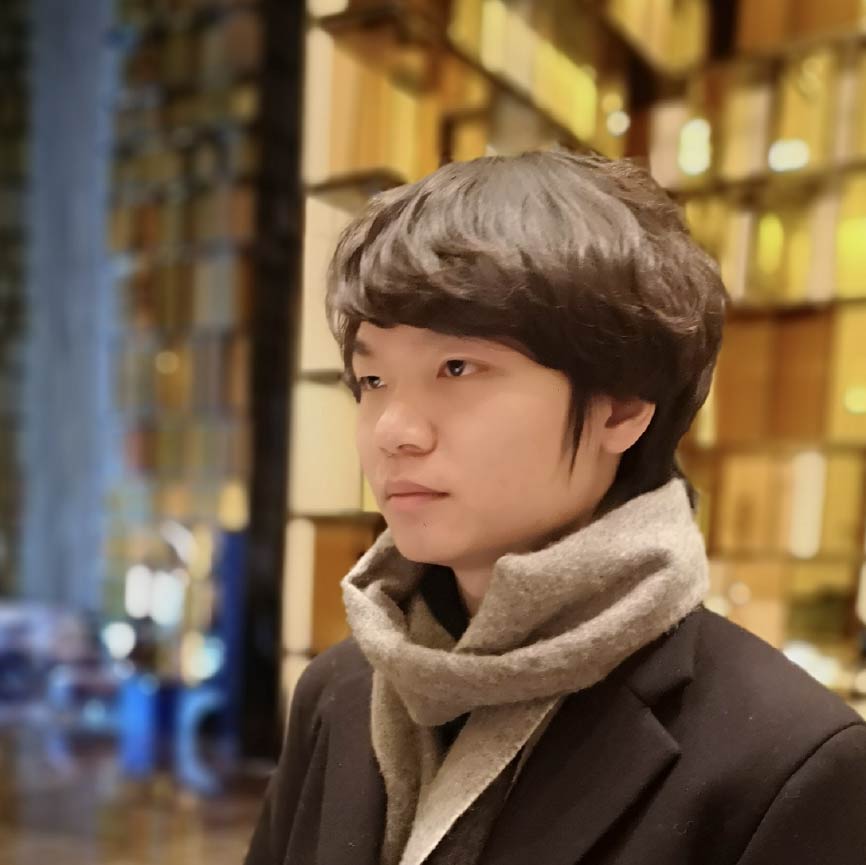 Jiancheng Liu
Jiancheng Liu
Biography: Jiancheng Liu, also known as JC, is currently a first-year graduate student working under the guidance of Prof. Sijia Liu. Jiancheng’s research focuses on making AI systems both safe and scalable—something they’re truly passionate about. When they are not buried in code or academic papers, you'll find them hitting the high notes in a karaoke room or scaling a rock-climbing wall.
Research Description: Machine Unlearning is like teaching a computer to selectively forget certain things it has learned, without losing all the other knowledge it has acquired—imagine erasing just one specific memory from your brain while keeping everything else intact. Jiancheng’s project, called "UnlearnBench," is essentially a virtual testing ground that measures how well and how quickly different computer systems can perform this selective forgetting. This will help them create safer and more efficient technology that's well-suited for cloud computing platforms.
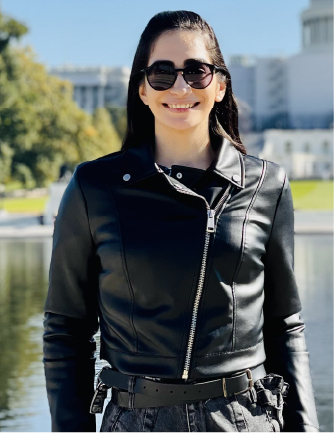 Fatemeh (Fatima) Fathi Niazi
Fatemeh (Fatima) Fathi Niazi
Biography: Fatima is a third-year Ph.D. student in the Department of Computational Mathematics, Science, and Engineering, working under the supervision of Dr. Alex Dickson. In general, Fatima is passionate about AI, specifically generative AI models, coding, algorithm development, and engaging in multidisciplinary research. Fatima enjoys playing sports such as volleyball, soccer, and table tennis, as well as playing board games.
Research Description: In the lab, Fatima uses advanced computational techniques to simulate the interaction between drug molecules and their receptors in our bodies. Fatima’s current research focuses on applying advanced Generative AI models to a new algorithm they have developed for molecular simulation.
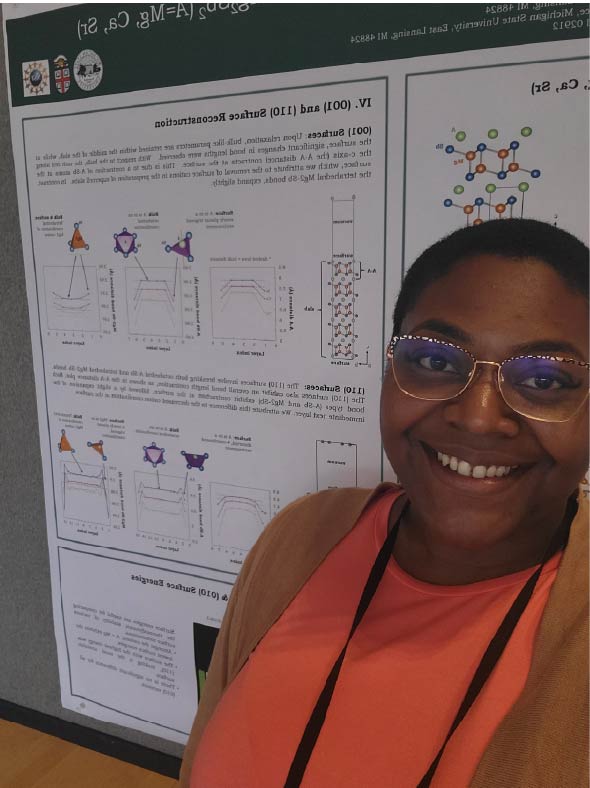 Monique Nidra Noel
Monique Nidra Noel
Biography: Monique was born to a Caribbean lineage in Jamaica Queens, New York. She has always been an academic and leader among her peers. At the age of 16, she started community college and began to plant the seeds of a curious scientist; in 2014, she received her Bachelor of Science from the illustrious Florida Agricultural & Mechanical University. Her background is in traditional synthetic chemistry and now computational materials science is her focus. She finds it fascinating to employ computational tools to help solve future problems of the world. She enjoys sunbathing, singing, dancing, playing with her cats, watching sci-fi films, and most importantly, her family. She has always spoken for the underdog, and she looks forward to using science as a mechanism to impact the lives of the forgotten. She thanks the MSU Cloud Computing program for another opportunity to showcase her talents and bring awareness to my community!
Research Description: Thermoelectricity is the conversion of a heat gradient into useful electricity, and vice versa. The efficiency of this phenomenon is of critical importance to the future of power generation. Zintl phases are a class of polar intermetallic compounds that combine ionic and covalent bonding to form charge-neutral structures, leading to semiconducting properties. In Monique’s research, she uses first-principles calculations to study various surface parameters of AMg2Sb2 (A=Mg, Ca, Sr) Zintl compounds, such as crystal orientation, surface energy, adsorption energy, surface reconstruction, and work function, to understand the design of these novel materials.
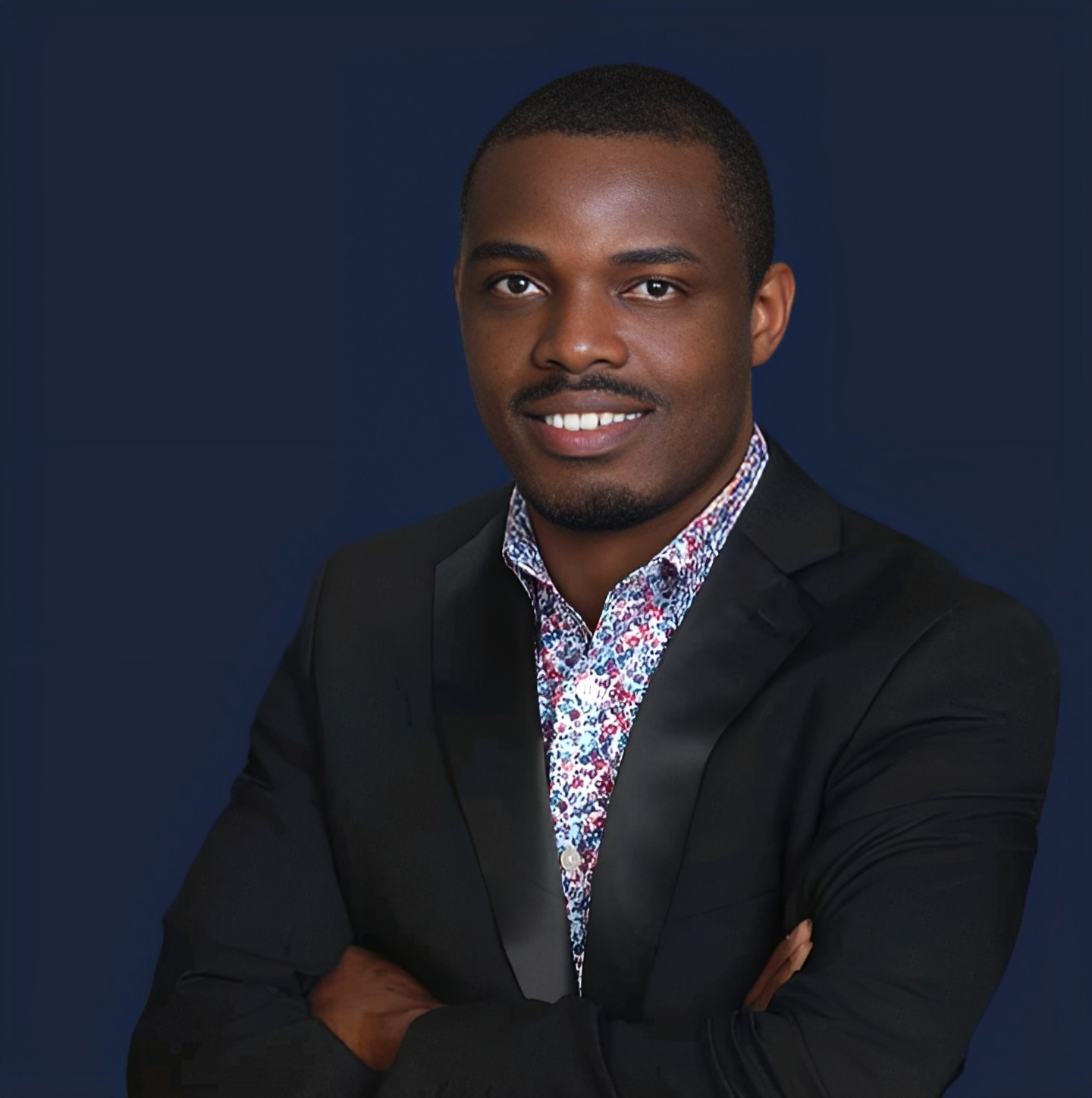 Ojo Olorunsogo Paul
Ojo Olorunsogo Paul
Biography: Ojo Paul completed his bachelor's degree in Agriculture, specializing in Soil Science, from Ahmadu Bello University in Nigeria and began his career as a Quality Assurance Analyst at DABOL. He furthered his education with a master's degree in Soil Science from Punjab Agricultural University in India and another in Biology from Miami University in Ohio. Currently a Ph.D. student at Michigan State University, he is working on a remote sensing-based index for post-harvest corn residues under the supervision of Prof. Bruno Basso. Passionate about biking and traveling, Paul aims to become an industry leader in agro-ecosystem modeling.
Research Description: Paul’s doctoral research focuses on using remotely sensed imagery to create a new, scalable index for measuring and mapping post-harvest corn residues. By examining the spatial and temporal variability of these residues with remote sensing tools, he aims to better understand their effects on soil health and environmental feedback. Additionally, he is working on identifying proxies for Soil Organic Carbon (SOC) to incorporate them into crop models, thereby improving yield predictions through AI and process-based models.
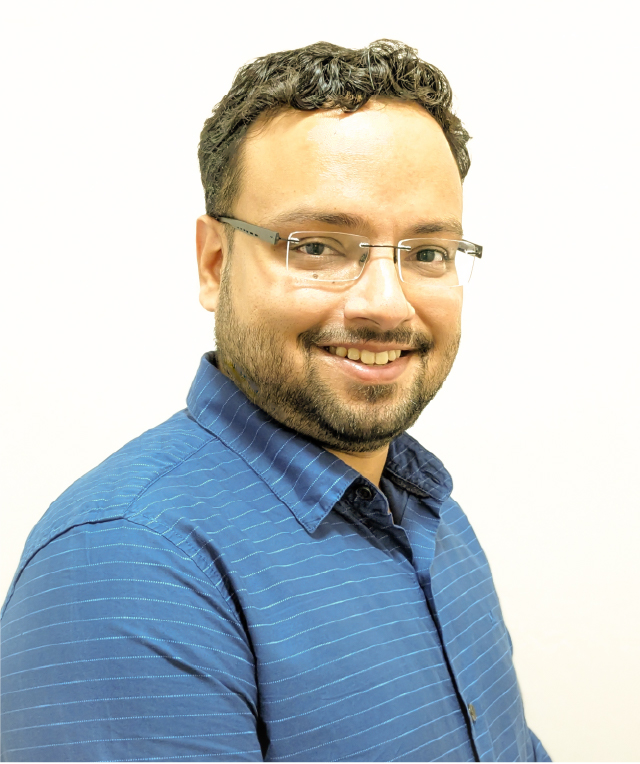 Avirup Roy
Avirup Roy
Biography: Belonging to the land of the mighty Himalayas, "cloud" has fascinated Avirup a lot over the years. Engineering is his passion, music is his life. From capturing landscapes with various shapes and patterns of clouds on his camera to having delicious tea and pakoras (Indian fritters) during cloudy evenings, clouds have become an integral part of Avirup’s life. It's time for him to be closely associated with another form of cloud, now in his research.
Research Description: Learning the Megh Raga ("Raga" is a pattern of notes in Indian classical music having characteristic intervals, rhythms, and embellishments, "Megh" means cloud in Sanskrit) at a very tender age helped Avirup establish a deep connection with the clouds. Now it's his turn to convert this connection with cloud to his research which involves self-learning mechanisms on embedded hardware with computational constraints. Avirup would like to utilize cloud computing resources to overcome the computational limitations of embedded hardware devices in order to attain better self-learning capabilities.
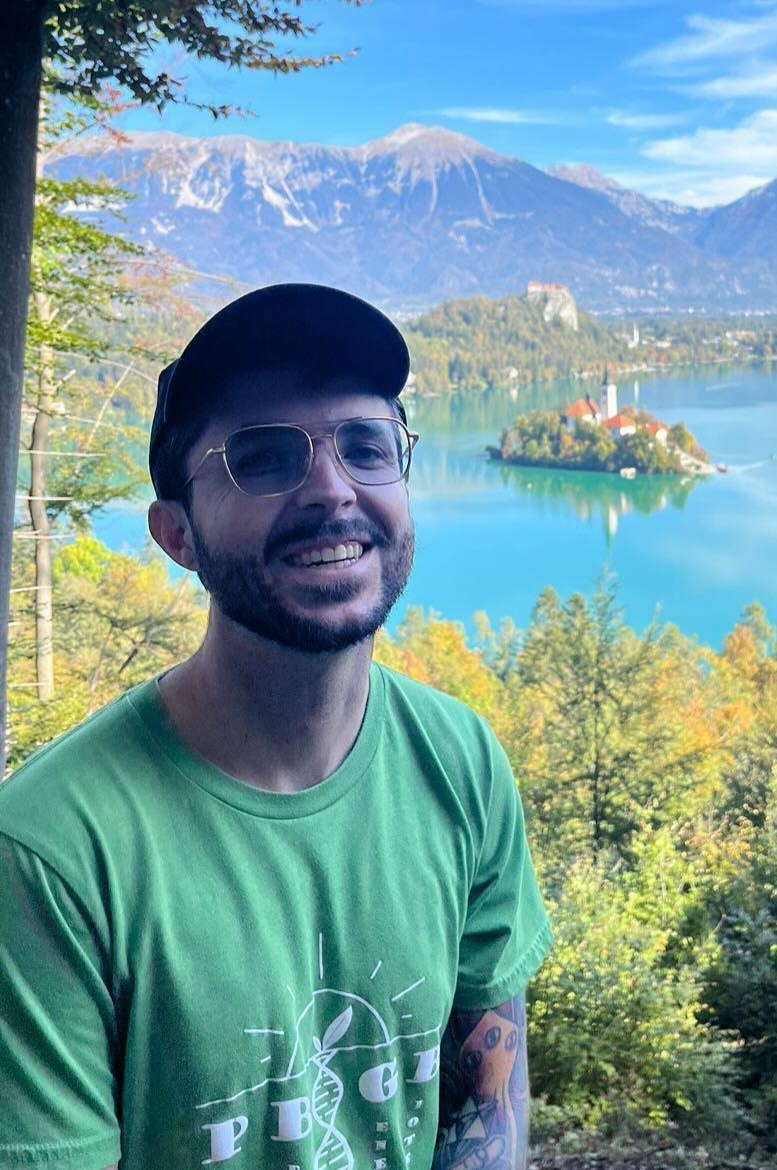 Brandon Michael Webster
Brandon Michael Webster
Biography: Brandon completed his B.S. in environmental biology at CalPoly Humboldt and has worked with plants ever since then. He is a fourth-year Ph.D. candidate in Plant Bio- Plant Breeding, Genetics, and Biotechnology (PBGB) and he likes plant breeding because it's a confluence of many different disciplines from biology to engineering. He would like to use plant breeding to help fortify and prepare agriculture for obstacles that will arise from climate change. When not at work he likes to stay active, especially bike-commuting on the river trail or playing with his two dogs. Alternatively, you can find him playing games.
Research Description: Brandon’s research goal is to better understand the biology of how maize plants respond to fertilizer input. To answer his questions, he is studying large populations of maize in the field and using remote sensing plus genomic mapping methods. These methods allow researchers to take advantage of large data sets but also come with significant computational needs.
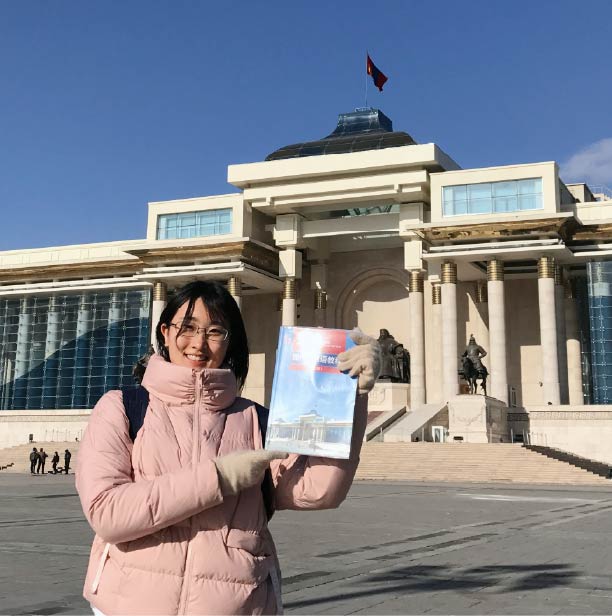 Yaxuan Wang
Yaxuan Wang
Biography: Yaxuan Wang is a linguist with a focus on exploring the intricate nuances of language meanings, which she hopes will provide insights into key properties of the human language system. Yaxuan’s passion extends to Mongolian studies, encompassing languages, literature, history, and cultures. Beyond her professional pursuits, she finds solace in origami, painting, and exploring the rich tapestry of cultures around the world.
Research Description: Yaxuan studies how words and sentences convey meaning and how people understand them. She uses logic and experiments to figure out how language works. Additionally, she researches something fun: emojis! She looks at how emojis relate to the words people use with them.
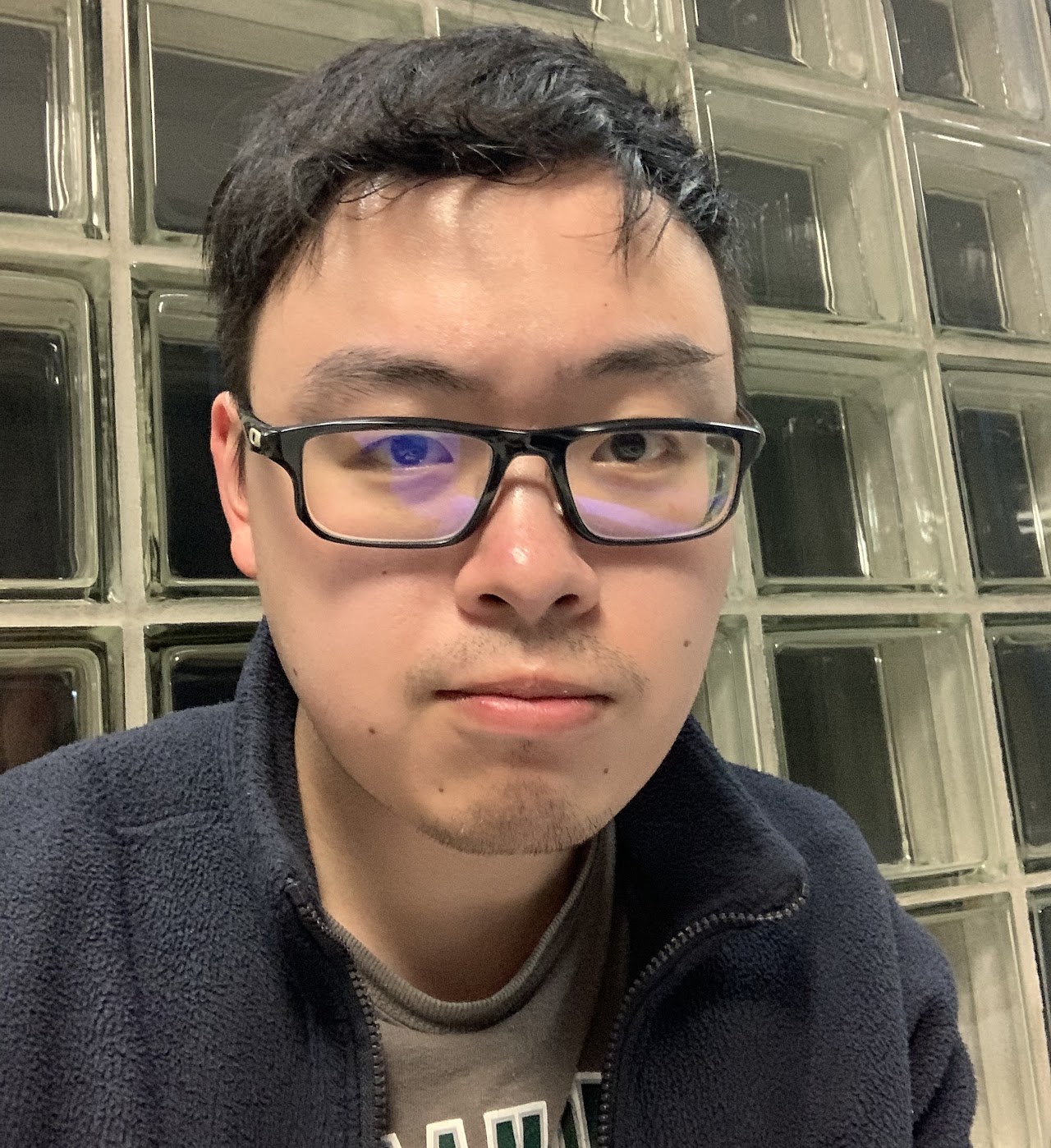 Han Xu
Han Xu
Biography: Han Xu is a final-year Ph.D. student of Computer Science, in the Department of Computer Science and Engineering at Michigan State University. Before joining MSU, he received a master’s degree in Statistics from the University of Michigan. Han always dreams of having an academic career that he can devote to research to enhance the trustworthiness of AI techniques.
Research Description: Han has broad research interests in Trustworthy AI, including machine learning robustness, fairness, and privacy issues. He is particularly interested in studying the bias issues in adversarial robust models, and how to leverage poisoning attack techniques for data user's privacy protection. Han is also very interested in the related problems in real-world applications, such as graph data, text data, and financial data.
